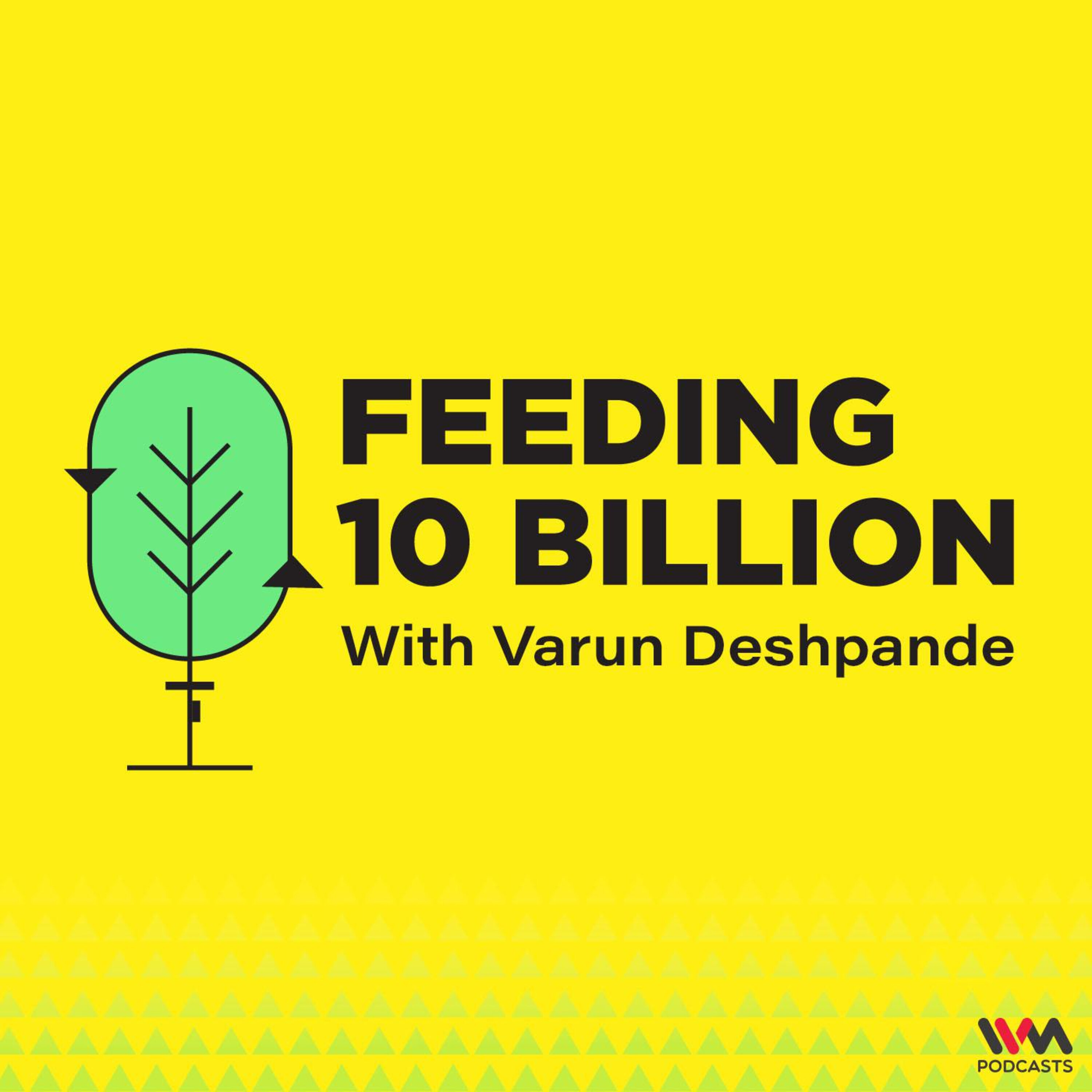Ep. 9: Fishing for a Fix
Description
It’s no secret our oceans are in trouble. Climate change and bad policy continue to contribute to major shifts in one of the most complex ecosystems on the planet. Among the most pressing challenges are ocean acidification (the ocean today is, on average, 25% more acidic than in pre-industrial times), overfishing (a staggering 93% of all fisheries are being fished at or beyond capacity, while demand for seafood continues to rise the world over) and plastic pollution (about half of which is a direct result of fishing and seafood consumption; more than 640,000 tons of “ghost gear” — discarded fishing equipment — ends up in oceans every year). And while efforts to address these issues have ramped up in recent years, they have often focused on the wrong things. In this episode of Feeding 10 Billion, Varun and Ramya sit down with Jen Lamy, manager of the Sustainable Seafood Initiative at the Good Food Institute, to discuss the problems facing our oceans, the complex and opaque seafood supply chain and why plant-based and cultivated seafood are the best way forward.
SHOW NOTES:
What is plant-based meat and seafood?
Plant-based products are direct replacements for animal-based products, such as plant-based meat, seafood, eggs and dairy. These include products that use the biomimicry approach to replicate the taste and texture of meat, as well as plant-forward products (like jackfruit, seitan, tofu and tempeh) that serve as functional meat replacements. Source
What is cultivated meat and seafood?
Cultivated meat (often referred to as cell-based meat or clean meat) is genuine animal meat that can replicate the sensory and nutritional profile of conventionally produced meat because it’s comprised of the same cell types and arranged in the same three-dimensional structure as animal tissue. It isn’t imitation or synthetic meat; it’s actual meat that is grown from cells outside of an animal. Source
Dr Mark Post’s Ted Talk at TedX Haarlem in 2013: Meet the new meat
What is aquaculture?
The term aquaculture broadly refers to the cultivation of aquatic organisms in controlled aquatic environments for any commercial, recreational or public purpose. The breeding, rearing and harvesting of plants and animals takes place in all types of water environments including ponds, rivers, lakes, the ocean and man-made “closed” systems on land. Source
What is ocean acidification?
Ocean acidification refers to a reduction in the pH of the ocean over an extended period of time, caused primarily by uptake of carbon dioxide (CO2) from the atmosphere. Source
Organizations, Institutes, Cultivated, and Plant-Based Companies:
The Good Food Institute’s Sustainable Seafood Initiative
Developing and commercializing plant-based and cell-based seafood is the most tractable path for ensuring seafood sustainability and improving the health of our oceans. GFI’s Sustainable Seafood Initiative provides targeted research and support with a laser focus on accelerating this sector.
FAO
The Food and Agriculture Organization (FAO) is a specialized agency of the United Nations that leads international efforts to tackle food insecurity, world hunger, and food sustainability.
IPCC
The Intergovernmental Panel on Climate Change (IPCC) is the United Nations body for assessing the science related to climate change.
Shiok Meats
Shiok in Singapore and Malay slang means fantastic and delicious. Shiok Meats is the first cell-based clean meat company in Singapore and South-East Asia. Their mission is to bring delicious, clean and healthy seafood like crustacean meats (including shrimp, crab and lobster) by harvesting meat from cells instead of animals. Their meats are animal-, health- and environment-friendly with the same taste, texture, more nutrients and no cruelty.
Avant Meats
Avant Meats Company
More Episodes
Published 12/14/21
Published 12/14/21
Published 12/14/21


